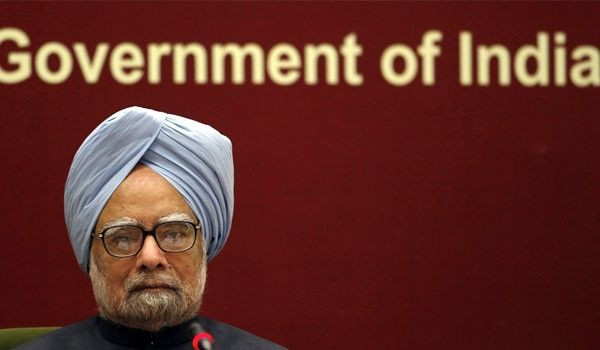Singh Takes Over Indian Finance Ministry; What He Must Do Now

Indian Prime Minister Manmohan Singh took charge of the Finance Ministry Wednesday and immediately met with his key advisers and officials to reorganize it, local media reports said.
Singh took on the finance portfolio after Tuesday's resignation of Minister Pranab Mukherjee to contest the presidential election as the ruling coalition's UPA candidate.
The prime minister, an economist who spearheaded India's economic reforms in 1991 as finance minister in the Narasimha Rao government, is likely to hold onto the portfolio until the economy gets back on the right track.
The prime minister has decided to look after the Finance Ministry for a month or two. A new finance minister will only be appointed when he thinks the time is right, an official from Singh's office told AFP.
Singh is expected to take immediate measures to set right the Indian economy, which is struggling with multiple problems from slowing growth rate and high inflation to falls in currency value and policy indecisiveness.
Investors are expecting that Singh, as the poster boy of Indian reforms, will take strong steps on the policy front regarding key issues. A slew of issues await immediate decisions from the government.
They include:
1. Telecom spectrum: The prime minister will immediately have to look in to the pricing of 2G spectrum and decide on minimum price of airwaves to be sold, by next week. Otherwise it will be difficult for the government to adhere to the Supreme Court of India's order to complete the spectrum auction by Aug. 31. The issue is contentious as the telecom companies want the government to fix lower tariffs, while there is strong public, judicial and opposition scrutiny on the issue, following corruption scandals.
2. Foreign direct investment in key sectors like multi-brand retail, media, civil aviation and banking. Taking a decision withstanding the pressure from his key government allies, the Samajvadi Party and others, who are dead against foreign investment in crucial sectors, will be a tough job.
There is strong opposition in India against FDI in the retail and banking sectors as the opposition and the industries concerned fear it will damage the domestic players and cost jobs. But if Singh is able to initiate the process then it would serve as the biggest booster for the investors, markets and the economy.
3. Inflation control: He will have to take steps to curb spiraling inflation, which has shown no signs of declining despite the monetary measures undertaken by the Reserve Bank of India. Inflation in the country is close to double digits.
4. Food subsidies, fertilizer pricing and related issues: The prime minister has to decide soon on the issue of food subsidies, as the subsidies on food supplied through its Public Distribution System to people below the line of poverty is expected to come to a gigantic sum of Rs 75 billion this financial year. Singh will have to initiate measures to control spending on subsides and again it would be an unpopular decision.
Fertilizer prices are going up due to depreciation of the rupee as India imports 90 percent of its requirements. Government at present subsidizes major fertilizers and this is again at the cost of billions of rupees to the government.
Apart from this, Singh is also expected to take a decision on deregulation of diesel prices and cooking gas, both of which are highly subsidized at present. None of these decisions are going to be easy as crucial state elections are coming up early next year.
© Copyright IBTimes 2025. All rights reserved.





















